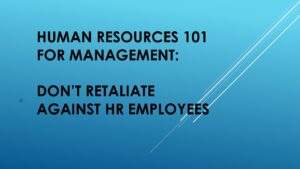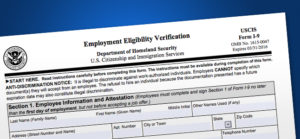 The Chief Privacy Officer at Facebook recently took the unusual step of not only advising Facebook members that passwords should not be shared with others, but he also admonished employers who request passwords from job applicants and employees. He warned employers that such actions could lead to discrimination claims. This posting was in response to complaints from members that prospective employers were requesting username and password information.
The Chief Privacy Officer at Facebook recently took the unusual step of not only advising Facebook members that passwords should not be shared with others, but he also admonished employers who request passwords from job applicants and employees. He warned employers that such actions could lead to discrimination claims. This posting was in response to complaints from members that prospective employers were requesting username and password information.
Employer requests for social media passwords create a myriad of interesting issues. First, there is no law that specifically prohibits an employer from requesting Facebook or social media passwords from applicants or current employees. While an applicant or employee has the right to refuse, an employer in Texas probably has the legal right not to hire the applicant, or terminate the employee based on the refusal. That’s the bad news for workers. Now the bad news for employers.
Employers are prohibited from asking applicants about their age, medical conditions, religious beliefs, and other subject areas protected under anti-discrimination laws. But what if an employer asks for your Facebook password, and later views your profile where you have posted about your battle with cancer, pregnancy, military reservist duties, or your religious beliefs? Has the employer now violated anti-discrimination laws by possessing information they would otherwise be prohibited from requesting in the job selection process? Quite possibly, yes. Employers should be aware that Facebook and other social media sites store personal information and photos that will probably reveal a member’s gender, race, and age group. Profiles may also provide information about a member’s marital status, children, religious beliefs and medical conditions. Once this “cyber-Pandora’s box” has been opened, it cannot be closed. An employer who views an applicant or employee’s profile will be deemed to have knowledge of the “protected” information contained within. If, after acquiring this information, an employer later makes an adverse employment decision (i.e. failure to hire, demotion, failure to promote, or termination), it has now subjected itself to a potential discrimination claim. Employers will need to decide whether the intrusion into an applicant’s private life is worth the cost of potential litigation.
In my next posting, I will address what legal protections, if any, employees may have when criticizing their employer on social media.
“Never take a person’s dignity: it is worth everything to them, and nothing to you.”
– Frank Barron





